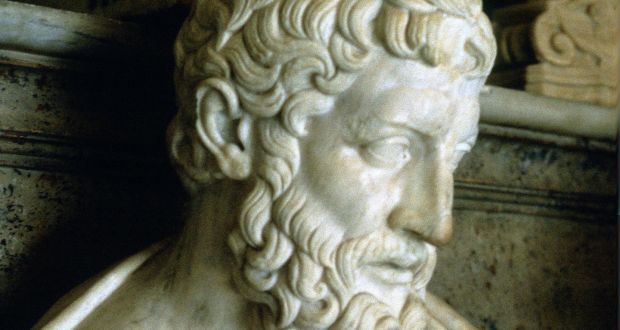Branch: Ethics
Approach: Epicureanism
“The art of living well and the art of dying well are one in the same”Epicurus was born approximately 20 years after the death of Aristotle on the island of Samos. He would develop a school of philosophical thought known as Epicureanism. Epicureanism is a very particular brand of ethical philosophy that essentially teaches people to live their lives by minimizing the amount of pain and fear they experience during their time on earth. He is often accused of being a hedonist because his philosophy would appear to define good, ethical behavior as anything that is pleasurable.
This is not necessarily correct. It is true that he promoted a life of happiness through friendship and family. However Epicurus does not tell us to surround ourselves with worldly pleasures, but rather to eliminate that which is unpleasurable such as pain and fear. By doing this we may live a pleasant life filled with small pleasures such as friendship. He is often cited as saying:
“It is impossible to live a pleasant life without living wisely, honorably, and justly, and it is impossible to live wisely, honorably and justly without living pleasantly.”
Epicurus believed that the one thing that kept us from finding true happiness was the fear of death. In line with his philosophy, Epicurus argued that death was only bad if it could cause you any pain or harm. And since we are no longer capable of physical or emotional anguish during death, we have nothing to fear from death. A fear of death is illogical. Death distracts us from enjoying life and therefore interferes with our happiness. By accepting that death as inevitable and that at the time of death we are incapable of fear or pain, we can learn to live contently.
Epicurus believed very firmly that we should look for knowledge in objectively verifiable phenomenon. He practiced a rudimentary form of the scientific method, relying on evidence rather than faith. This lead to the belief that he was an atheist, which made him very unpopular. It is perhaps for this reason that he never gained an expansive following. However the few followers he did have were extremely devoted and loyally followed him until the last day of his life.
Click the link to learn more about Epicurus
-Epicurus: The Nature of Death and the Purpose of Life










No comments
Trackbacks
Our apologies, you must be logged in to post a comment.